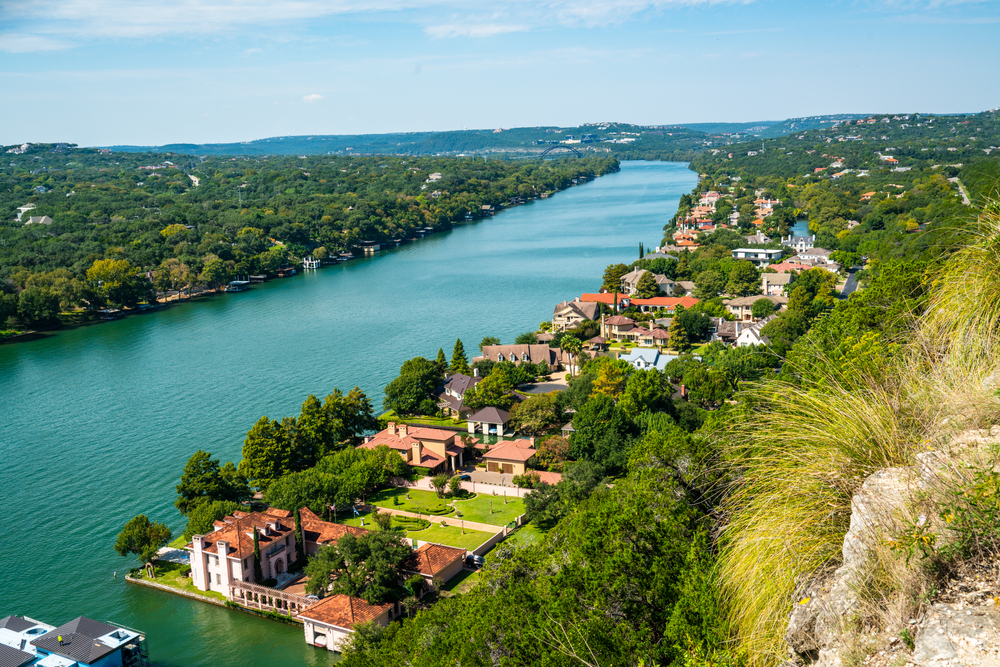
Hard Water in Austin Homes: Causes, Effects & Solutions
October 9, 2025
Preventing Clogged Drains in Austin: Tips & When to Call a Pro
October 9, 2025How Austin’s Climate Affects Your Plumbing: Floods, Droughts & Freezes
From springtime downpours that overwhelm drainage systems to scorching summers that parch the soil and sudden winter ice storms, Austin’s climate throws a lot at your home’s plumbing. The pipes and fixtures behind your walls respond to these swings, and neglecting them can lead to expensive repairs when you least expect it. In this article, Flint Plumbing explains how central Texas weather impacts water lines and sewer systems, and what you can do to protect your home and family.
Floods & Heavy Rains
Central Texas sees seasonal flash floods and heavy rain events. When the ground is saturated, water can infiltrate sewer pipes and overwhelm municipal systems. Backups and overflows aren’t just messy— they can pose serious health risks. To prepare:
- Install a backflow prevention valve: This device prevents wastewater from re-entering your home when sewers surge.
- Grade and clean your gutters and drains: Keep gutters clear and ensure the soil around your foundation slopes away from your house so water doesn’t pool near pipes.
- Consider a sump pump: In low-lying areas or houses with basements, a sump pump can keep flood water at bay.
If you notice standing water around cleanouts or sewage odors after a storm, call a licensed plumber. Flint Plumbing offers emergency plumbing services in Austin and can perform camera inspections to diagnose storm-related issues.
Drought & Soil Shifts
Between rain events, Austin endures long dry spells. Clay soils shrink as they dry, causing foundations and underground pipes to shift and crack. These subtle movements can lead to slab leaks, broken supply lines and misaligned sewer laterals.
- Maintain consistent moisture: Water your foundation regularly during droughts (with Austin Water’s watering schedule in mind) to minimize soil shrinkage.
- Watch your water pressure and bills: A sudden drop in pressure or unexplained increase in your water bill could signal an underground leak.
- Use flexible materials: When replacing old galvanized or rigid copper pipes, consider PEX or other flexible piping that can better handle soil movement.
If you suspect a leak beneath your slab, schedule a slab leak detection and repair. We use acoustic and isolation testing to locate leaks without tearing up your entire floor.
Freezes & Cold Snaps
Although winter freezes in Austin are infrequent, recent cold snaps (like Winter Storm Uri) have taught homeowners how devastating they can be. Water expands as it freezes, bursting uninsulated pipes in attics, walls and crawl spaces.
- Insulate exposed piping: Wrap outdoor faucets, hose bibs and any plumbing in unheated areas with insulation sleeves or foam wrap.
- Keep a trickle of water flowing: On nights below freezing, slightly open faucets furthest from your meter to keep water moving.
- Open cabinets and locate your shut-off: Allow warm air to circulate around indoor pipes by opening cabinet doors under sinks. Know where your main shut-off valve is so you can stop the flow if a pipe does burst.
We can winterize your home or repair freeze-damaged pipes. Contact Flint Plumbing for professional winterization services.
Year‑Round Plumbing Preparedness
No matter the season, routine maintenance helps your plumbing withstand Austin’s changing weather:
- Flush and descale water heaters: Hard water scale can build up faster after a drought; flush your tankless or storage-tank heater annually.
- Schedule annual inspections: A licensed plumber can spot small issues—like worn anode rods or corroded shut-off valves—before they become emergencies.
- Upgrade aged pipes: If your home still has galvanized or polybutylene piping, replacement before extreme weather hits can prevent catastrophic failure.
Regular maintenance, combined with timely repairs, keeps your system resilient no matter what the Texas weather brings. Our team at Flint Plumbing is licensed (M‑42279) and insured. We’ve been serving the greater Austin area for over 40 years, providing honest advice and quality workmanship.
Ready to protect your home? (512) 971‑2445 is staffed 24/7, or book online for a consultation.
FAQs About Austin’s Climate & Plumbing
How does heavy rain affect sewer lines?
Intense storms can overwhelm municipal sewer systems. If stormwater infiltrates your private sewer lateral, it can back up into your home. Installing a backflow preventer and maintaining your lateral with regular inspections can prevent messy sewage backups.
Can drought really break pipes?
Yes. When soils dry and shrink, the ground shifts. Rigid pipes can crack or pull apart at joints. Flexible materials like PEX and proactive foundation watering can mitigate this risk.
What should I do if a freeze is forecast?
Wrap exposed pipes, open cabinets under sinks, allow a drip at farthest faucets and locate your main shut-off. If temperatures stay below freezing for several hours, keep interior heat on and monitor for drops in water pressure.
When should I call a professional?
Anytime you notice unusual sounds, wet spots, high water bills or other signs of trouble, contact a licensed plumber. It’s better to investigate early than wait for a small problem to cause major water damage.

